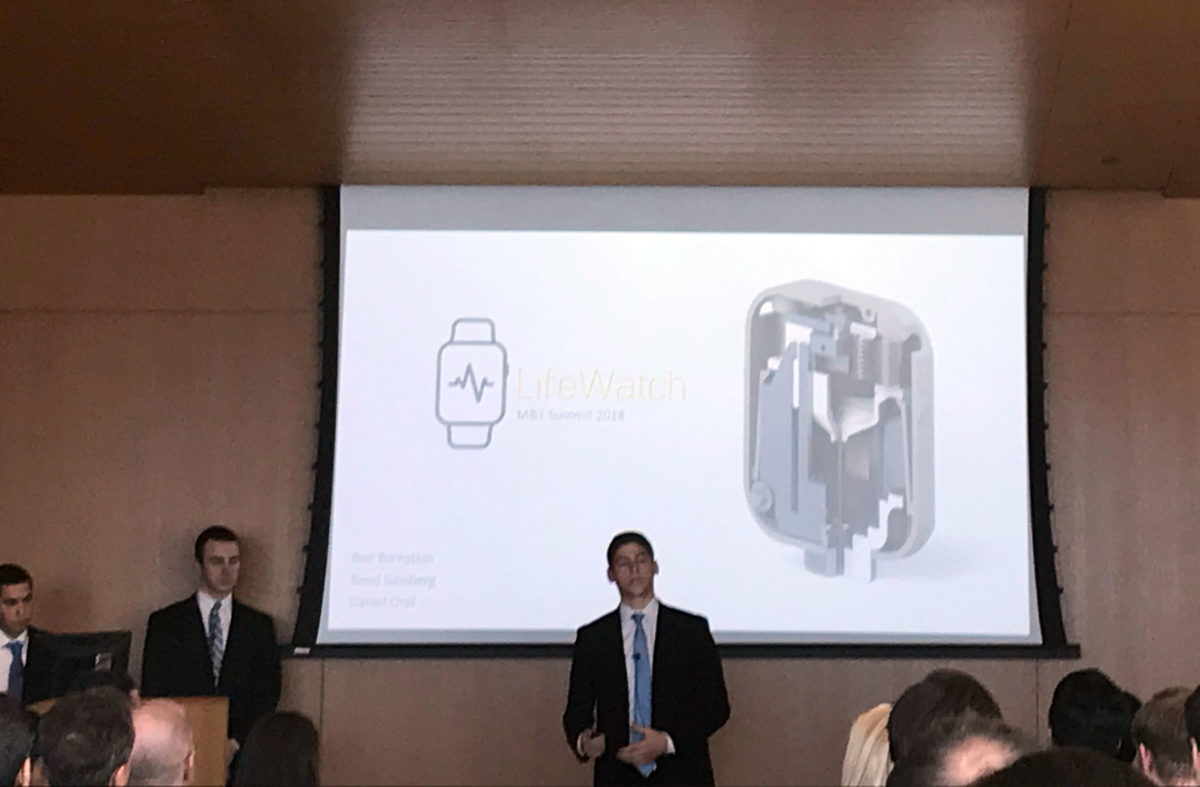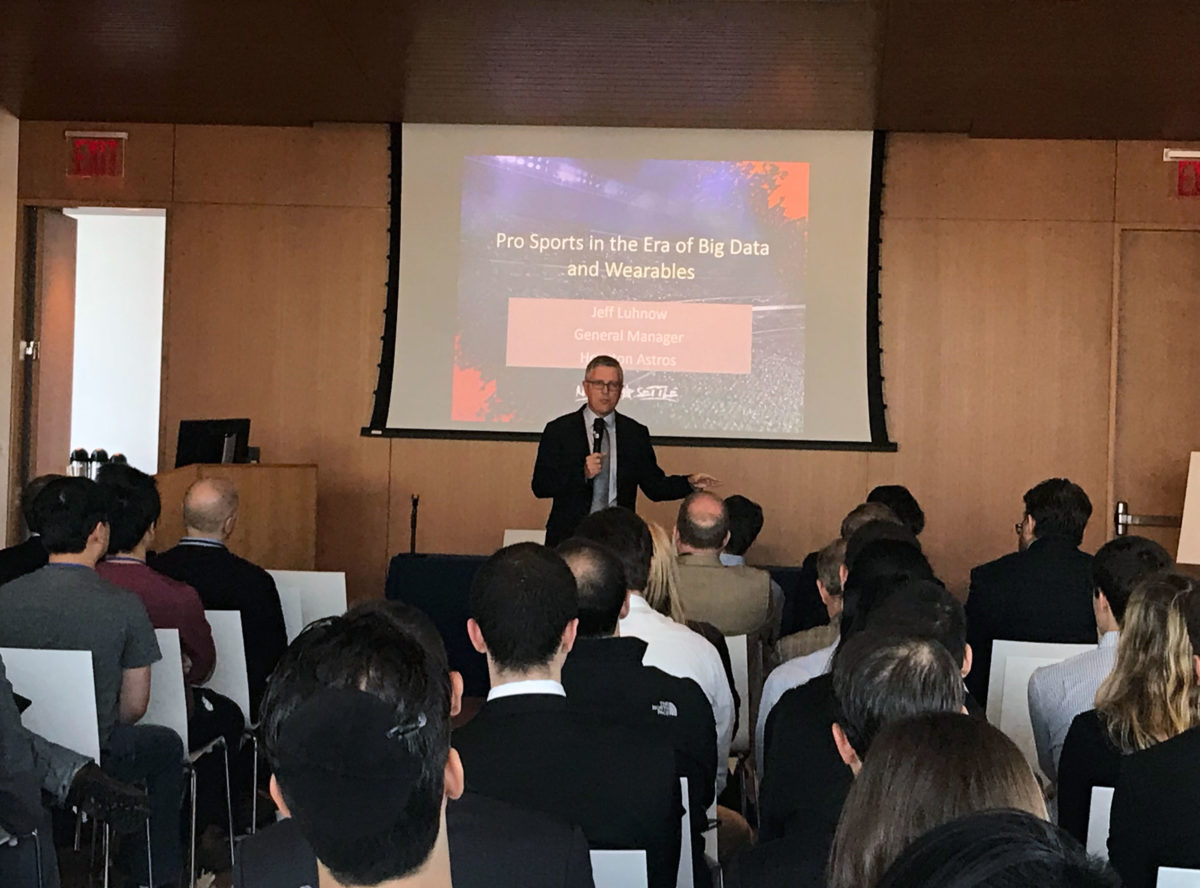Nearly 200 people gathered early Saturday to listen to Houston Astros General Manager Jeff Luhnow talk about how big data is changing professional baseball.* Hours later and nearly as many were still there to watch a competition between seniors in the Jerome Fisher Program in Management & Technology at the University of Pennsylvania.
Students in the already competitive program already had to spend their senior year developing an engineering project and business plan, but this is the first year the students would be competing for a $2,000 prize as part of the school’s first annual M&T Summit.
All of the semi-finalists had to fit the summit’s theme of healgth. Students pitched apps like Mindful, meant to help college students track and improve their mental health, and Sleepalyzer, which tests drowsiness. Another sleep project was called Sleepal-DX, software its creators want to sell to sleep researchers to test for chronic obstructive pulmonary disease.
There were hardware projects like Peri, a smart sock to track peripheral edema, Orbis, a smart tracker device meant to help those break their opioid addiction, Foot’s Ease, a smart shoe meant to fix foot drop, and Smart Fiber, a glove meant to help amputees regain sensation that was pitched like an early version of Black Panther’s super suit.
Ultimately, the winner was LifeWatch, a potential challenger to EpiPen that fits the syringe into something the size of a large watch. Their presentation focused around the personal story of Reed Ginsberg, who suffers from a tree nut allergy and always has to carry around epinephrine.
“I wanted to make it smaller,” said Ginsberg, “and didn’t realize I could put it in the watch until we started to brainstorm.”

Their business plan noted the major backlash to the price hike of the EpiPen and the lack of innovation in the space.
The team says they will put the $2,000 prize back into the product, and plan to keep developing it.
The judges didn’t reveal why they made their decisions during the presentation, but Timothy Babich, a 1998 alumnus of the program and founder and CEO of Fortelus Capital Management, said it was impressive that they had a working prototype and had good market analysis.
Foot’s Ease took home second place and $1,500. Sleep-DX won a best presentation award of $500 and Smart Fibers, the only one-person team, won a $500 innovation award.
“I’m just so impressed with the students, the faculty and putting them all together,” said M&T Summit organizer Sangeeta Vohra.
Vohra says the summit will be back next year and will remain a signature part of the program.
—
*If Luhnow seems out of place as a keynote speaker, he actually fit right in. He also noted he was invited before the Astros won the World Series. Luhnow graduated from the M&T program in 1989, and saw his potential to get into professional baseball after reading Moneyball by Michael Lewis. His presentation focused on how big data is being used not just in recruiting talent in professional baseball but is now being used for health applications.
Luhnow said there are more opportunities for people with technology backgrounds in baseball, but it’s still hard to get in the door. He got started at the St. Louis Cardinals by a connection he made while at McKinsey & Co. But there are other ways of networking.
“Go to the ballpark. Talk to the guy in the stands with the radar gun,” Luhnow said. “Those are the types of relationships that will help you get an entry level position.”







